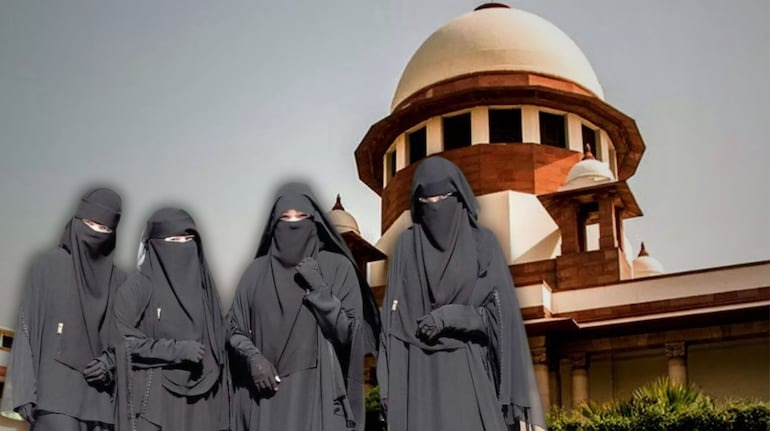
New Delhi: The Supreme Court on Wednesday ruled that a divorced Muslim woman can claim alimony from her husband under Section 125 of the Code of Criminal Procedure.
The verdict was passed by a bench of Justices BV Nagarathna and Augustine George Masih after dismissing a petition filed by a Muslim man challenging the direction to pay alimony to his divorced wife under the CrPC.
Justice Nagarathna said, “We dismiss the criminal appeal and hold that Section 125 applies to all women.” Justice Nagarathna and Justice Masih delivered separate but concurring judgments.
The bench clarified that the law regarding demand for maintenance applies to all married women, irrespective of their religion.
The court said that alimony is not a charity but a right of married women. Justice Nagarathna said, 'Some husbands are not aware of the fact that a wife who is a housewife is emotionally and otherwise dependent. Now the time has come for Indian men to recognize the role of a housewife.
to a divorced wife Case 10,000. Mohammad Abdul Samad had approached the Supreme Court questioning the family court's order to grant monthly allowance. However, the court has upheld the rights of women here too.
Importance of the verdict
To understand the significance of this judgment, it is necessary to go back to the Shah Bano case of 1985. In this landmark judgment, the Supreme Court ruled that Section 125 of the CrPC applies to everyone, regardless of their religion. However, this was diluted by the Muslim Women (Protection of Rights on Divorce) Act, 1986, which provided that a Muslim woman could claim maintenance only during the iddat period, 90 days after divorce.
In 2001, the Supreme Court upheld the constitutional validity of the 1986 Act, but ruled that a man's obligation to provide maintenance to a divorced wife continues until she remarries or maintains herself. Today's order further strengthens the right of a divorced woman to receive alimony under the CrPC, irrespective of her religion.
 look news india
look news india